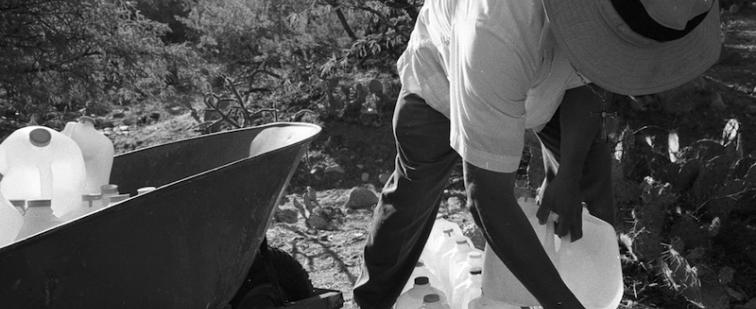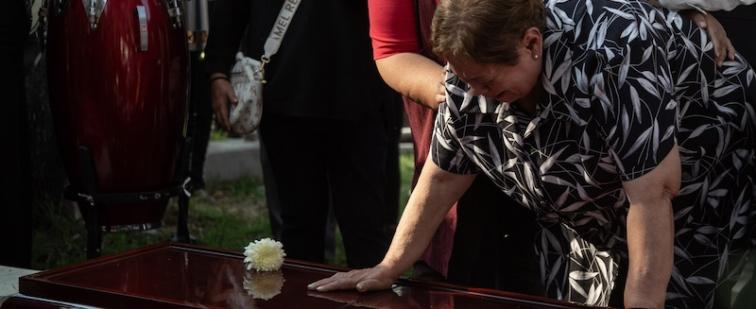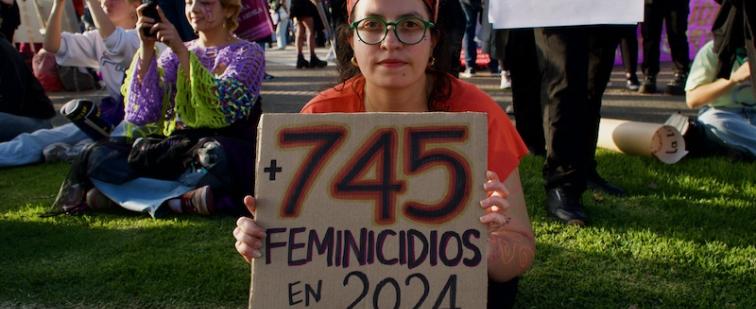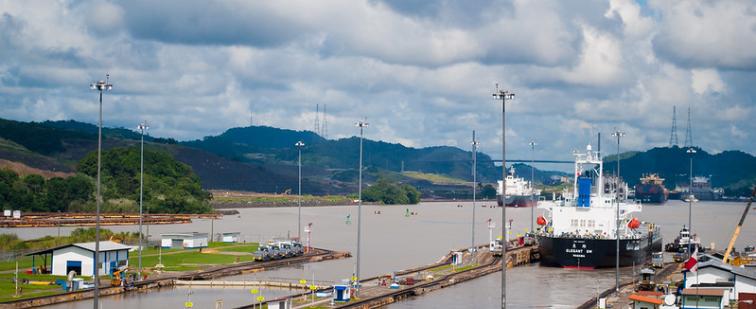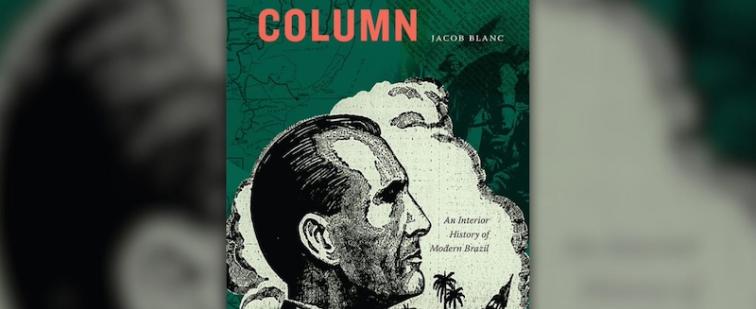Home
As Brazil's Guaraní Kaiowá attempt to reoccupy their ancestral lands, acts of violence against them are virtually an everyday occurrence. Having been stripped of nearly all their land, which has been converted into cattle ranches, soybean farms, and most recently sugar cane fields for the production of ethanol, their homelands now are largely unrecognizable. Containing Brazil’s expanding ethanol industry as it seeks to devour more indigenous lands will not be on the to-do list of President-elect Dilma Rousseff. On the contrary, one of her campaign pledges was to expand the industry.
When Rudolfo Muñoz, a reporter working in Ecuador for CNN, resigned from the cable news channel in the immediate aftermath of the September 30 political turmoil, not a single noteworthy U.S. news outlet—including CNN—bothered to report on his departure. Fittingly, Muñoz said that CNN had a “distinct slant” and “acted as if nothing happened” despite “proof that [police forces] tried to kill the president.” While it is still unclear whether the violent events of September 30 constituted an attempted coup, as President Rafael Correa claimed, Muñoz’s critique raises questions about how the crisis was covered in the U.S. mainstream media.
The assumption that few Latinos would participate in the U.S. midterm elections underestimated their political sophistication, as they were simultaneously disappointed with the Democrats, but also inclined to vote for them as a defensive measure against the virulently anti-immigrant Republicans. Despite economic woes, and no progress on immigration reform, Latino voters came out in much greater numbers than predicted. It is this grassroots and sophisticated organizing power that this newest edition of NACLA Report on the Americas examines.
Drug-trafficking has been on the rise in Central America since 2008, justifying the expansion of the U.S.-led drug war into the region. In a place where Washington has historically wielded tremendous power, the United States plans to continue using the same failed drug war strategy as it has in Colombia and Mexico. 7,000 U.S. Marines have already been approved for Costa Rica, and other countries, such as Honduras, are asking for an increased U.S. military presence. There is a broader geopolitical strategy, critics say, for the United States to tighten its hegemonic grip in the region.
On September 20, Haitian prime minister Jean-Marc Bellerive, U.S. Secretary of State Hillary Clinton, and the World Bank announced their partnership with a South Korean garment firm to establish an industrial park that will create 10,000 garment assembly jobs in Haiti. Without a doubt, earthquake-ravaged Haiti needs jobs, mainly to provide the country’s 1.3 million homeless with the means necessary to rebuild their destroyed homes. However, rather than solve the housing problem, the factories will depend on the vast pool of low-wage labor present in the homeless camps. Haiti's meager minimum wage of $3.09 per day will be barely enough to cover the worker's food expenses.
Congressman Sam Farr (D-CA), joined by 29 other Members of Congress, sent a letter to Secretary of State Hillary Clinton today calling on the Obama Administration to suspend aid - particularly military and police assistance - to the government of Honduras, while murders of political activists and media workers and other attacks in that country continue with near impunity.
On September 13, the Cuban government made a stunning announcement: Within the next six months, state payrolls will shed half a million workers. Additionally, the government will allow a great expansion of self-employment which it hopes will offset the planned layoffs. The new measures mark a sea change in Cuba, and some observers have speculated that this will mean the end of socialism itself. But the more compelling question is how will the Cuban leadership, who insist they will not embrace capitalism, now define socialism?
On September 30, about 1,000 Ecuadoran national police officers staged a rebellion, accusing Ecuadoran president Rafael Correa of vetoing benefits enjoyed by the country's public servants. However, as well-coordinated protests spread over four of Ecuador's provinces, and with the police shooting to kill, the Correa administration accused the country's right-wing opposition of planning a coup. Labor and indigenous organizations in Ecuador, however, have taken a more nuanced line. The police rebellion occurred, they argue, because Ecuador’s right wing is taking advantage of weaknesses created by Correa’s alienating governing style.
On October 3, Worker’s Party (PT) candidate Dilma Rousseff won the first round of Brazil’s presidential election with 46.9% of the vote. Paramount to Rousseff’s victory was her ability to convince voters that she represented the continuity of the policies of popular Brazilian president Luiz Inácio Lula da Silva. It was initially thought that for many of Brazil’s social movements Rousseff's message of “business as usual” would be received unfavorably, given the lack of structural change during Lula’s two administrations. Yet, this has not been the case, and many of Brazil's social movements see in Rouseff the potential to usher in further social change, including land reform and a shorter work week.
A set of policies adopted in January 2010 during the de facto presidency of Roberto Micheletti are now the basis of the goals for USAID's latest round of "democracy promotion" funding in Honduras. This will continue the long history of U.S. funding of the Honduran elite, the very players allegedly behind the June 2009 military coup that ousted former president Manuel Zelaya. What is cloaked as funding for democracy is likely to help these elites further consolidate their power, and serve as an impetus to push through neoliberal economic reforms that were stalled under Zelaya.





